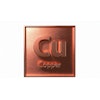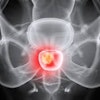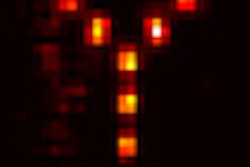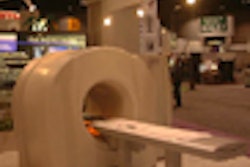Explaining the pros and cons of post-operative radiotherapy for colorectal cancer to a patient can produce more anxiety than enlightenment. The various prospective trials, randomized studies, and retrospective analyses -- not to mention the sometimes conflicting results -- can be daunting for someone faced with such a difficult decision.
"This has created a problem for us as clinicians," said Dr. James Martenson, Jr. of the Mayo Medical School in Rochester, MN, during a presentation at the "Perspectives in Colorectal Cancer" conference in San Francisco in September. "It’s very difficult to walk into a room and discuss something this complex with a patient. This is really the first disease site where I’ve had to use a visual aid."
To that end, Martenson has created a simple, one-page Microsoft Word document that touches on the major issues, both good and bad, associated with radiotherapy after rectal cancer resection.
"First, I explain what a randomized clinical trial is, depending on the patient’s education level. Then I talk about the fact that there are a number of clinical trials that show radiotherapy and 5-Fluorouracil (5-FU) chemotherapy is better than either doing nothing or receiving radiotherapy alone after surgical resection of rectal cancer," Martenson said. "What it often comes down to is this: Does the patient want to do absolutely everything, recognizing the limitations [of radiotherapy]? Or does the patient want to forgo radiation therapy and potentially increase the risk of local recurrence?"
It’s a set of questions the cancer treatment community is still grappling with, Martenson said. He outlined some of the landmark studies of adjuvant radiation therapy in colorectal cancer that have been conducted over the years.
A former resident at the Mayo Clinic performed a retrospective survey that Martenson said he found particularly disturbing. The study sample consisted of 100 patients who had undergone anterior resection for rectal carcinoma, two to five years earlier, and had either undergone post-operative radiation therapy as well as chemotherapy, or just chemotherapy alone.
Based on the results of the telephone interviews, the researchers found that the group who had undergone radiation therapy reported more bowel movements per day, had nighttime bowel movements more often, had occasional or frequent incontinence, and were unable to defer defecation for more than 15 minutes. In addition, these patients reported perianal skin irritation, had stool of liquid consistency, and needed to defecate again within 30 minutes of a movement.
They concluded that adjuvant post-operative radiotherapy for rectal carcinoma has a "major, long-term detrimental effect on bowel function" (Annals of Surgery, Nov. 1994, Vol.220:5, pp.676-682).
"This is a retrospective study and it suffers from all the problems that retrospective studies have, but these are highly significant results," Martenson said. "I don’t think we can completely dismiss them."
Among the prospective post-operative radiation therapy trials that Martenson highlighted in an accompanying abstract were:
- National Surgical Adjuvant Breast and Bowel Project R-01 -- Patients were randomized to receive no further treatment after resection, a chemotherapeutic regimen of 5-FU, methyl-CCNU, and vincristine or pelvic radiation therapy. Local recurrence was reduced in the radiation therapy arm, but the results did not reach statistical significance (Journal of the National Cancer Institute, March 2, 1988, Vol.80:1, pp.21-29).
- North Central Cancer Treatment Group -- Patients were randomly allocated to receive pelvic radiation therapy alone or combined with 5-FU and Me-CCNU. Disease-free survival, freedom from local recurrence, and overall survival were significantly improved in those who received the combination (New England Journal of Medicine, March 14, 1991, Vol. 324:11, pp.709-715).
- National Surgical Adjuvant Breast and Bowel Project (NSABP) Protocol R-02 -- Patients either received pelvic radiation therapy or did not. All patients received systemic treatment with either 5-FU, leucovorin, or vincristine, also known as the MOF regimen. Local relapse was reduced from 13% to 8% with the addition of radiation therapy (Journal of the National Cancer Institute, March 1, 2000, Vol.92:5, pp.388-396).
One of the authors of the last study, Dr. Norman Wolmark of Allegheny General Hospital in Pittsburgh, also attended the conference. He pointed out that the results of the NSABP trials should encourage clinicians to challenge the conventional wisdom that the combination of radiation therapy with chemotherapy offers no additional survival benefit.
To request a copy of Martenson’s patient presentation, write to: [email protected].
By Shalmali Pal
AuntMinnie.com staff writer
September 18, 2000
Let AuntMinnie.com know what you think about this story.
Copyright © 2000 AuntMinnie.com



















